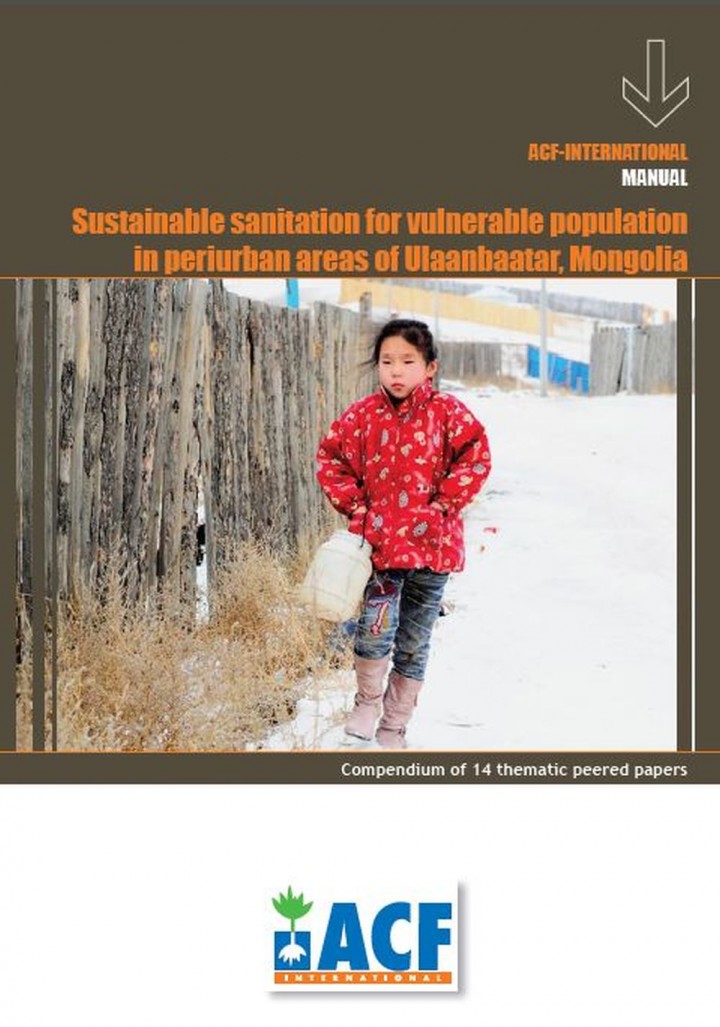Sustainable sanitation for vulnerable population in periurban areas of Ulaanbaatar, Mongolia Compendium of 14 thematic peered papers ACF (2015)
Action contre la Faim (ACF) has been working in Mongolia since 2001; both in Ulaanbaatar Ger areas (urban formal and informal slums), and the western Bayan Ulgi (province), undertaking multiyear food security, WASH and nutrition programmes.
Both water and sanitation sub sectors are a growing concern: the current method for excreta disposal is using basic, often poorly constructed unsealed pit latrines. The current system is causing intense biological contamination of groundwater resources, and as many Ger1 areas overly aquifers, endanger the water supplies currently used to supply the city. The unhygienic designs also allow the proliferation of disease spreading flies, and bring issues of odours. Domestic grey water disposal is either into inefficient on-site pits or latrines, or thrown indiscriminately into the street. The latter is causing ice hazards in winter, and providing breeding grounds for disease spreading vectors in summer. Water distribution in peri-urban areas is both a concern in term of sustainable Access (especially in winter time) and quality.
The WASH research project (2011-2015) with strong involvement from local partners and academic partners, especially the University of Sciences and Technology from Beijing, China, aimed at testing appropriate technologies & solutions; identify effective methods for their promotion; and reinforce the public and private sector to deliver the identified solutions. Specifically it focused on:
• Addressing issues of low water consumption of kiosk users and researching kiosk management
• Identifying and piloting sustainable on-site sanitation options
• Improving domestic water management and other hygiene practices
More generally, the project aimed at exploring how to ‘close the loop’ and evolved progressively from technical to environmental and advocacy thematic, especially focusing on green economy and eco-cities approaches. Whilst some aspects of the programme are specific to Ulaanbaatar (such as the climate), the broader issues addressed of improving access and delivery of WASH services to the urban poor are relevant around the world, like Bangladesh, where ACF intervenes. The current compendium presents the fourteen peer reviewed publications produced by the project, on the following issues: eco development, socio-economics, health WASH related issues, compost and reuse and grey water management. Those scientific papers should be however red in perspective with the PhD Thesis and the numerous un-peered reports produced by the project, and available in ACF.
Bibliographic information
ACF (2015). Sustainable sanitation for vulnerable population in periurban areas of Ulaanbaatar, Mongolia Compendium of 14 thematic peered papers Action contre la Faim (ACF), Paris, France
Filter / Tags
Peri-urbanEducatorsPractitionersEnglish
Downloads
Sustainable sanitation for vulnerable population in periurban areas of Ulaanbaatar, Mongolia
Type: application/pdf
Size: 13.55 MB

